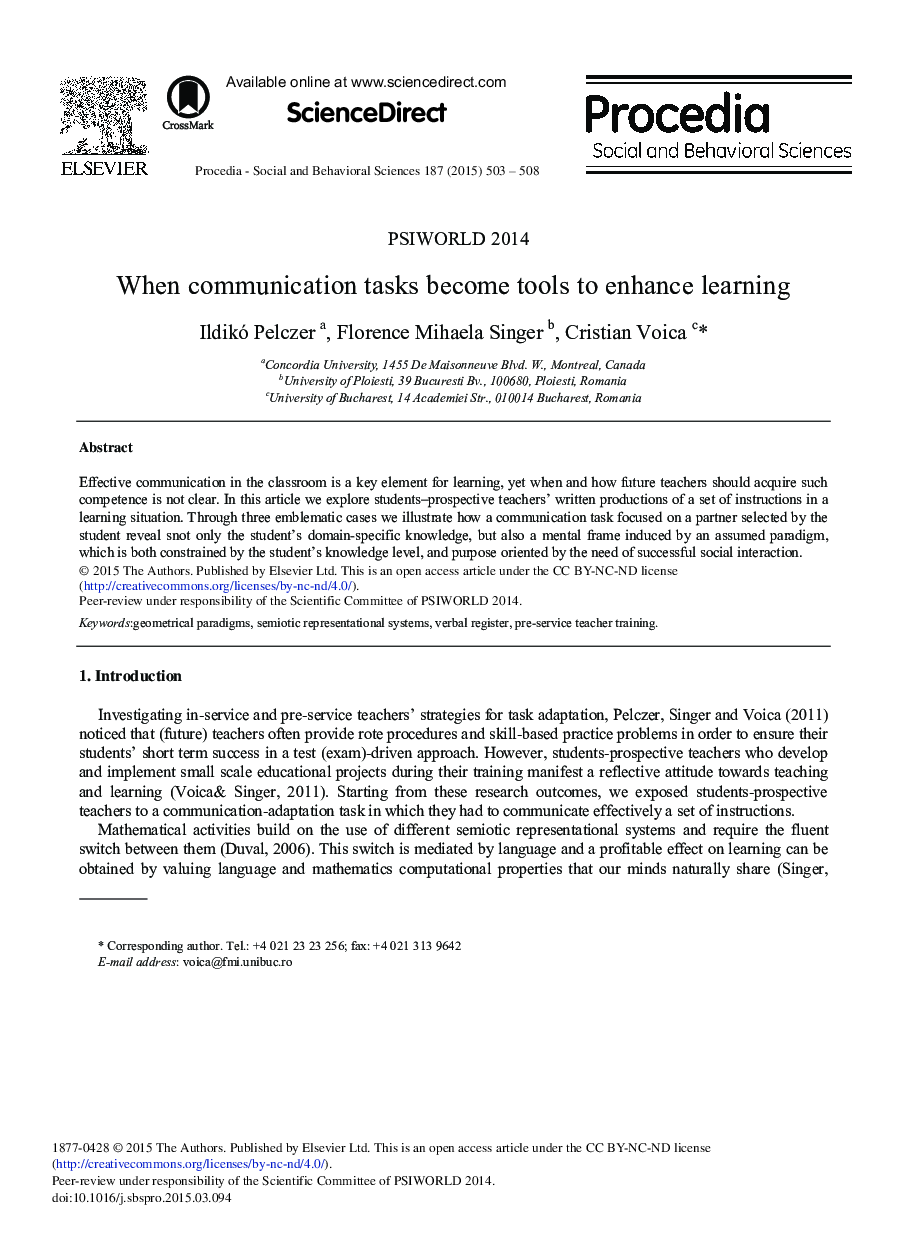| Article ID | Journal | Published Year | Pages | File Type |
|---|---|---|---|---|
| 1110386 | Procedia - Social and Behavioral Sciences | 2015 | 6 Pages |
Abstract
Effective communication in the classroom is a key element for learning, yet when and how future teachers should acquire such competence is not clear. In this article we explore students–prospective teachers’ written productions of a set of instructions in a learning situation. Through three emblematic cases we illustrate how a communication task focused on a partner selected by the student reveal snot only the student's domain-specific knowledge, but also a mental frame induced by an assumed paradigm, which is both constrained by the student's knowledge level, and purpose oriented by the need of successful social interaction.
Related Topics
Social Sciences and Humanities
Arts and Humanities
Arts and Humanities (General)
